Workshop Recap: ‘Figuring out the Future: Emerging Subjects and the Flux of the Economic Present’
By ucsawat, on 18 June 2015
On the 9th of June, our project held a pre-fieldwork workshop entitled ‘Figuring out the Future: Emerging subjects and the flux of the economic present’ at UCL Anthropology. The day-long event, organized by Rebekah Plueckhahn and Pascale Searle, was attended by colleagues from Oxford and Cambridge, as well as UCL and other London Universities. It ended with a wine reception in our courtyard, kindly arranged by Christopher Kaplonski.
In the past year, our group has been reading assorted theoretical works together, allowing us to reflect on our individual ethnographic projects and discuss unfurling economic and political changes in Mongolia. The aim of the workshop was to introduce our ideas on a series of shared themes to a diverse audience, as well as present concrete ethnographic studies that will, it is imagined, investigate some of these themes.
The workshop was divided into two thematic panels: ‘Economic Subjectivities’ & ‘The Politics of Infrastructure’. In each session, the themes, and the questions or hypotheses arising from them were presented, followed by different research proposals. Within ‘Economic Subjectivities’, for example, we presented theoretical approaches to ideas about neoliberalism, state formation, and subjectivity in the social sciences. Individual research papers relating to these topics were then presented, including research on (economic) nationalism; the use of different ‘zones of experimentation’ like Facebook, loans and lifestyle centres; and small-scale female migrant traders. Within ‘The Politics of Infrastructure’, approaches to the study of temporality, the construction of resources, infrastructure and the larger perception of the environment (i.e. the emergence of the Anthropocene) were presented. Projects directly addressing these ideas included changing concepts of property and ownership in Mongolia, as well as examining the proliferation of dust – and its ability to suspend several ideas at once – through mining in the Gobi desert. Each session was chaired by a different person – Joseph Bristley and Tom McDonald – who guided the discussion and posed some important questions.

Two ethnographically-derived concepts shaped the over-all discussions – the idea of prefiguration and resilience. Without the capacity to envision and enact stable futures, individuals increasingly ‘prefigure’—act out hoped for or expected futures in the present. At the same time, recent economic, development and environmental discourses, have shifted the sphere of responsibility for economic, social and global environmental change on to subjects. As a result, subjects (both people and points of concern) and their communities have been encouraged to become ‘resilient’—i.e. adapt and overcome instability through their own endeavours. Focusing on practices of prefiguration and resilience allows us to explore how new subjectivities and forms of collective activity are emerging ethnographically in Mongolia.
Our concluding round table discussion was led by Allen Abramson, who contributed many astute comments and questions regarding the theoretical trajectory of our project. He noted that none of our projects focus on nomadism—a previous staple of Mongolian ethnography and wondered if we saw economic change in Mongolia as impacted by previous cultural tropes, or as engendering new forms of relationality. Where have the old subjects gone, if we are focusing on ‘emergence’?
As alluded in our title, our project provocatively uses the term ‘emerging’ to examine whether current local economic developments are in fact ‘new’, or another manifestation of constant cultural change. We draw inspiration from geographers (like J.K. Gibson-Graham) and anthropologists of financialization (like Bill Maurer and Caitlin Zaloom) by assuming that the economy is constantly changing and always spatially-variegated. In this vein, discussions explored the role of religion and nomadism in contemporary Mongolia with explanations that concepts of karma, fortune, space and time in Buddhism are important for understanding any unfolding changes. ‘Emergence’ evokes ideas about a progressive vision towards a better future—a perspective we will query through ethnographic documentation of Mongolian reactions to constant economic flux.
As a project on the nexus of anthropological and economic theory, our project garnered interest from different perspectives, which invited questions during the workshop as to our target audience and future goals. As anthropologists, we feel ideally placed to ethnographically depict realities on the ground that can contribute to wider debates. Through the simultaneous enactment of five individual research projects, we endeavour to create a temporal snapshot of the rich complexity of economic change and its engendered responses.
One Response to “Workshop Recap: ‘Figuring out the Future: Emerging Subjects and the Flux of the Economic Present’”
- 1
 Close
Close


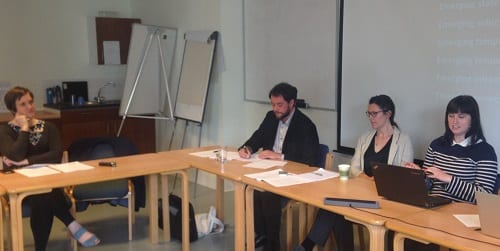
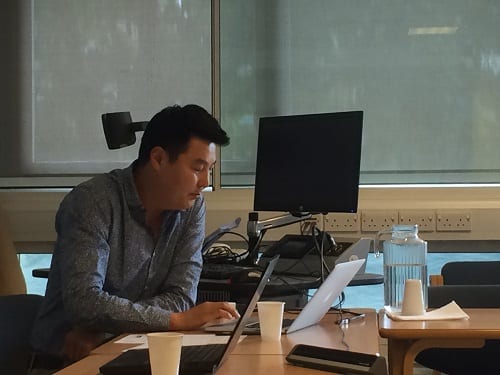
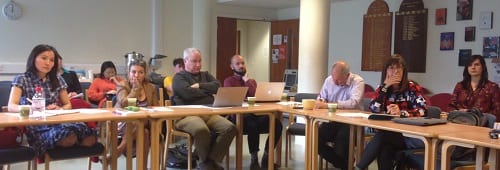
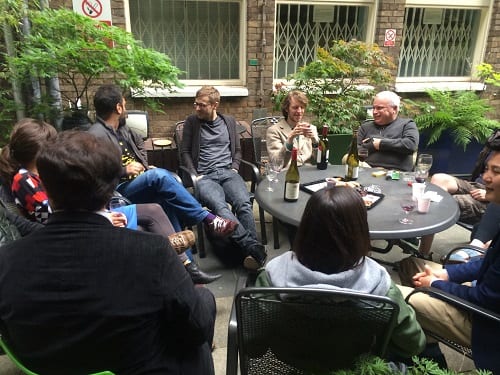
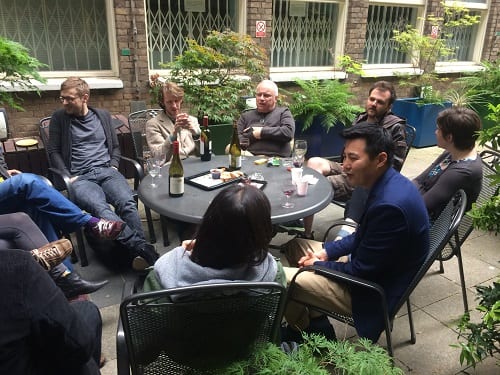


There should be more workshops like these to introduce new ideas and more so that we can work on many new things. Recently, I started working on https://www.personalstatementwriter.co.uk/ and writing content. I am also trying to work on different perspectives and start working on it.